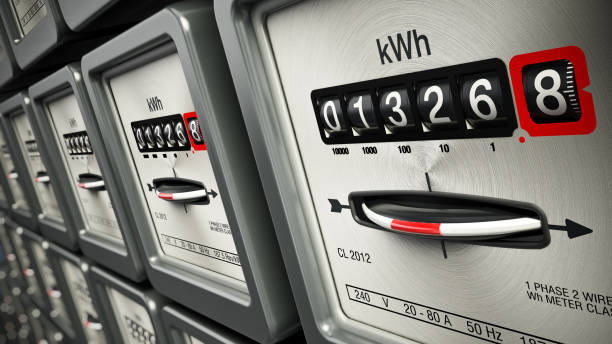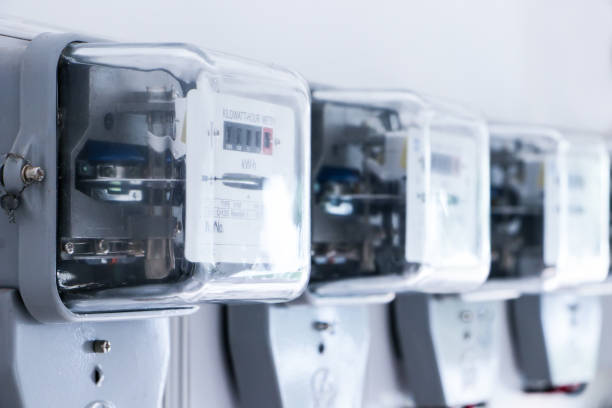Electricians Suggest These 4 Ways to Cut Down on Electrical Use
Electricians are often asked for tips on how to reduce electrical consumption. They can offer advice on both day-to-day lifestyle changes and some things that electricians can do as well.
For example, electricians can install LED or CFL bulbs, which use less energy and last ten times longer than traditional incandescent lights. They can also check the wiring to make sure that it is safe and not using too much electricity.

1. Switch to Energy-Efficient Appliances
Electricians aren’t just there to help with electrical disasters, they can also save clients money on energy bills by optimizing their home or business. From installing efficient lighting to upgrading their electrical wiring, electricians have the knowledge and experience necessary to reduce electricity consumption.
The most effective way to reduce electrical consumption is to switch out old appliances with newer ones that are more energy-efficient. Look for appliances that are labelled as energy-efficient with the blue ENERGY STAR logo, which indicates they meet rigorous standards set by the Environmental Protection Agency (EPA). Energy-efficient appliances use less electricity than their older counterparts, so switching out appliances in your home or office can result in lower electricity bills.
In fact, a recent survey found that 46 percent of Americans identified cost savings as a major reason for considering energy efficiency when purchasing appliances. In contrast, only 41 percent of respondents cited lowering greenhouse gas emissions as a major motivation.
In addition to switching out your appliances, consider investing in power strips that have built-in energy-saving features. These devices automatically cut off standby power to appliances that aren’t in use, reducing energy consumption and saving you money on your electricity bill. Similarly, unplugging unused electronics and appliances can significantly reduce energy waste and extend their lifespans. These steps can make a significant impact on your energy consumption and help reduce the amount of natural resources used for power generation.
2. Turn Off Appliances When Not in Use
Modern homes are full of devices that use electricity and many people don’t realize how much energy they’re using. From televisions to coffee makers, even appliances that are turned off — or on a low power setting — still use electricity. This is called phantom power or standby power and can drive up your electrical bill.
Unplugging appliances when you’re not using them can save energy and help reduce your energy bills. It’s also a good idea to invest in an electricity monitor, which can show you exactly how much power individual appliances are using on a regular basis. This will help you identify the worst offenders. Some devices to unplug include televisions, gaming systems (even those on a low power setting), stereos, hi-fi equipment, electric clocks and small kitchen appliances.
Unplugging devices may not seem like a big deal, but it can add up over time. Plus, it can extend the life of your appliances by reducing the number of microsurges that stress their electronics and cause them to short out. By taking the simple step of unplugging unused devices, you can cut down your energy costs, lower your carbon footprint and help save the environment.

3. Turn Your Thermostat Down
Electricians in Watsonia are skilled professionals who can help improve your home’s energy efficiency. This is done by installing efficient lighting solutions and appliances, as well as by upgrading electrical wiring. Another way that electricians can help you save on your electricity bills is by recommending ways to reduce your energy consumption. This can include turning down the thermostat, lowering your water temperature, using ceiling or room fans and more.
Heating is one of the biggest uses of energy in homes, so it’s important to remember that reducing your heating by just a couple degrees can significantly lower your electricity bills. This also helps to cut down on carbon pollution, which is great for the environment.
However, you shouldn’t turn your thermostat down so low that it’s uncomfortable or unsafe. It’s best to keep it at a comfortable level during the day and lower it at night or when nobody is home. You should also be sure to conserve energy during peak demand days, which occur a few times in the summer and once or twice during the winter.
Another great way to reduce your energy usage is by ensuring that your home is properly insulated. This can keep warm air in during the cold months and prevent hot air from escaping during the summer. An electrician can assess your insulation needs and offer efficient solutions to keep your home at a steady temperature and lower your electricity bills in the process.
4. Replace Old Appliances
Old appliances tend to be the most energy consuming and it is likely that you can save significantly on your electricity bill by replacing them with newer, more energy efficient models. In particular, refrigerators, clothes washers and dryers are often the biggest culprits. Upgrading to newer ENERGY STAR appliances will cut your electric consumption dramatically.
Depending on the model, you can also find rebates and incentives that may help offset the initial cost. Investing in these appliances will save you money on your electricity bills for years to come. The kitchen is typically the room in a home that uses the most energy, so it is a good idea to start here.
There are a few other things that you can do to reduce your electrical consumption. For example, you should routinely switch off appliances when they are not in use. This will help to eliminate the phantom power consumption that happens when appliances are left plugged in. You can also try using smart power strips to help reduce electricity usage. Finally, you should ensure that your appliances are operating in optimal condition, and replace them if they have reached the end of their useful life. You can also ask your electrician to conduct a professional electrical inspection of your home to pinpoint any hidden problems. Many times, faulty wiring or bad fuses are to blame.
